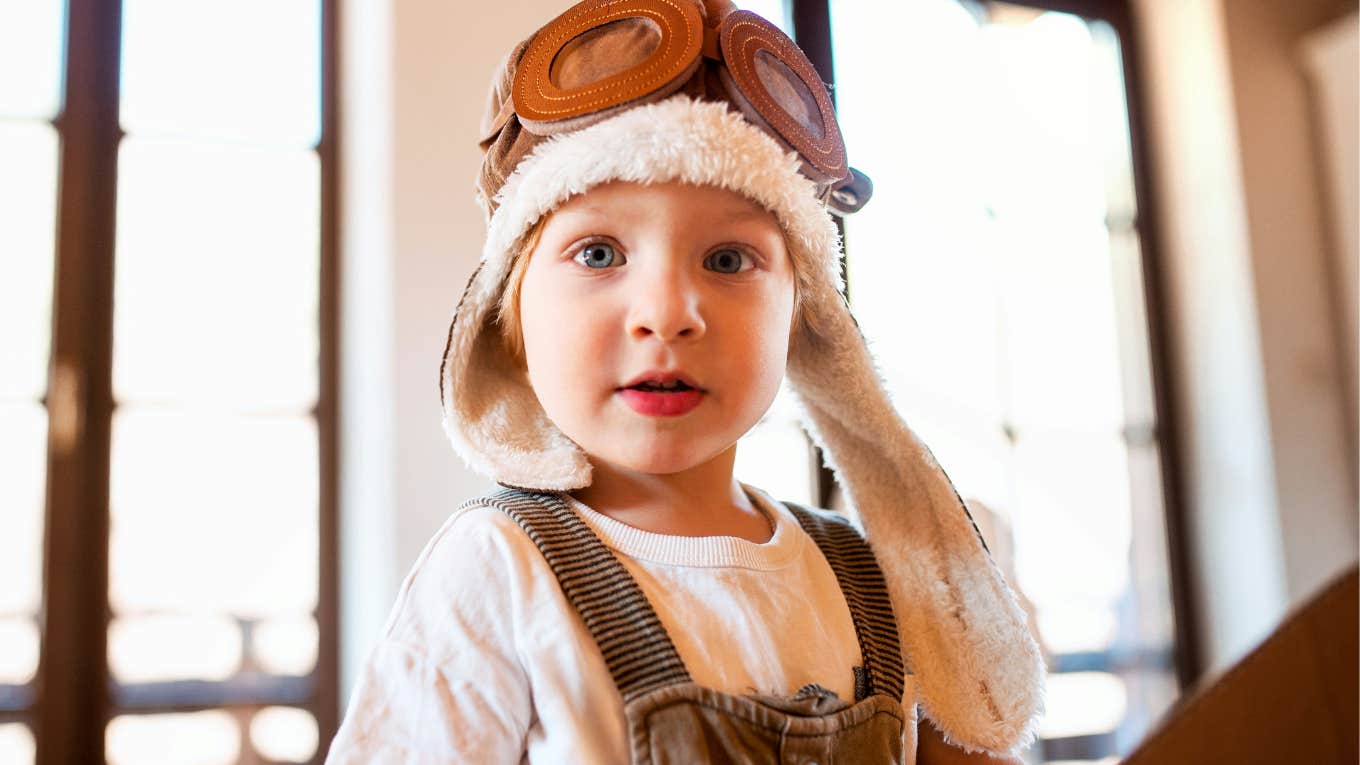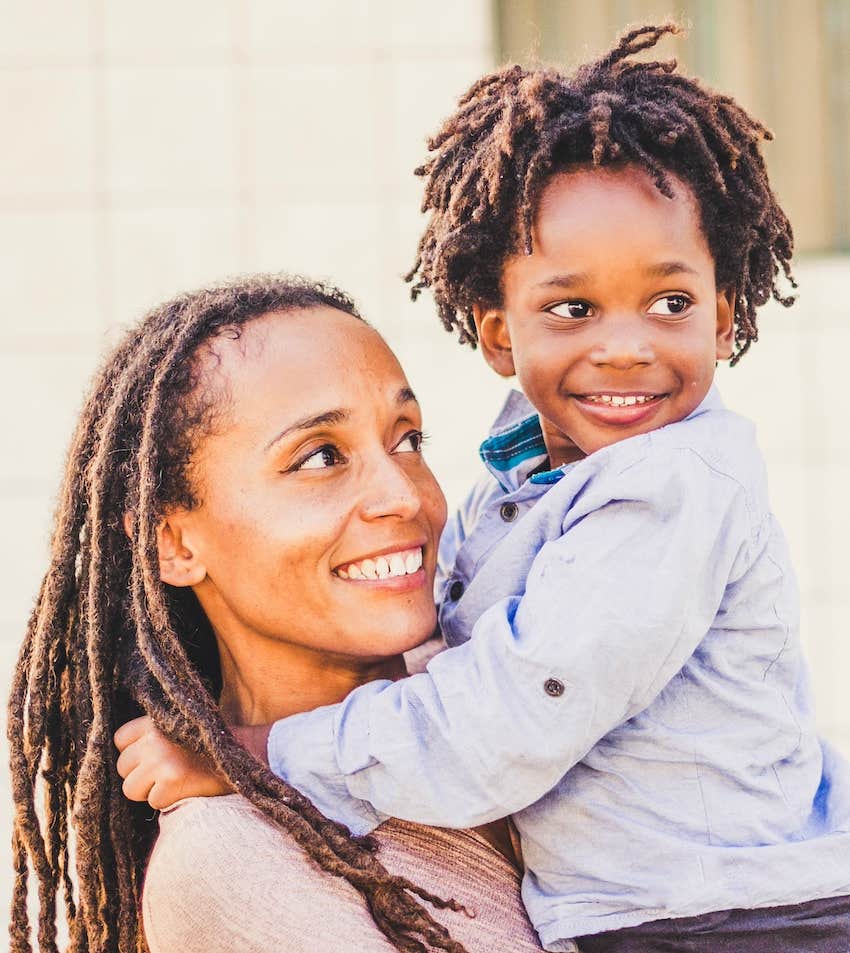Child Psychologist Reveals The Age Kids Really Start Remembering Things
The one thing kids may never forget is the sound of their mother's voice.
 Getty Images | Unsplash
Getty Images | Unsplash As the mother of a 3-year-old boy, I watch my son and wonder what will stick out in his mind. Perhaps our nightly routine: dinner, bath, playtime, bedtime books, and nighttime lullabies. Or maybe spending time at our rented beach house in the fall months — splashing in the water and playing in the sand. I'm also curious if there's anything I can do to help him remember things in the long run.
I sought out an expert to get some answers: Dr. Renée Spencer, a licensed counselor with a doctorate in counseling psychology. Dr. Spencer isn't just educated on the subject, she also works with kids every day, in school and at her private practice. She dropped some major knowledge on the subject.
The age kids start remembering things, according to child psychologist:
1. Memory before age 3
There is a lot we still don't know about memory and early brain development, but recent studies have revealed new information. Studies published by the APA performed on infants have helped researchers better understand the development of declarative or explicit (long-term) memory in infants. Mothers, you will be happy to know the one thing they may never forget is the sound of your voice.
"One of the explicit declarative memories that they've been able to find in young infants is remembering their mother's voice. Young babies were able to respond through their emotions," Dr. Spencer explained. "As soon as their mother spoke, they would instantly smile or soothe themselves. We don't know how long infants have been able to pick up on their mother's voice in utero, but it's the first place where their memory absorbs information."
Those painful nine months you spent carrying them, feeding them, and growing them are more personal than ever. It's your first chance to talk to them.
Dr. Spencer also explained the difference between semantic memory and declarative. She said infants who cry for their mothers to nurse them are using semantic/survival memory (unconscious), not declarative memory, which is conscious (seeing and knowing).
2. Memory in the toddler and preschool years
 PeopleImages.com - Yuri A
PeopleImages.com - Yuri A
Dr. Spencer encourages repetition and routine for all children, but especially ones aged 3-7. "Recall and repetition will make things go into long-term and stay because it becomes more of a categorized and organized piece of data that is stored into your memory," she said. "The more you start to recall something, the easier it will be to pull it back up. Kids who have parents who talk to them can pick up on memory skills early on."
Dr. Spencer also went on to explain how important early memory and brain development are before the age of 5. "The brain is so pliable while they're little that it's the best time to teach them things because they can absorb it all. The more you repeat, the more they repeat," she explained.
I'm amazed when my son memorizes a book after reading it once or twice. But I now realize our nightly bedtime routine is the reason, and it could be contributing to his long-term memory, according to sleep research from The American Psychological Association (APA).
3. Memory is reinforced by documenting events and using photos as stepping stones
Parents, be sure to take lots of photos. That silly picture of them with Goofy might help jog their memory as an adult and give them a flashback of a day they thought they'd lost forever.
"They are much more inclined to remember things from a younger age by seeing something like a picture or visualization," Dr. Spencer said.
4. Traumatic or painful memories stick out the most
When I was 5 years old, I was a daredevil. I loved climbing on roofs, hanging from tree branches, and doing flips off the diving board. But my fearless spirit finally got the best of me one December afternoon. Days before I was set to twirl my baton in a Christmas parade, I climbed up a woodpile that was stacked taller than me, maybe six feet high. I attempted to jump onto a trampoline below, but I missed it by a long shot. When I came crashing down, my left arm snapped like a twig.
I still have vivid memories of that day. The day I broke my first bone. The ride to the hospital was awful. My mom held me while I cried. She'd draped a towel over my arm and warned me not to look, but I was very persistent. When she gave in and lifted the towel, I screeched loudly and passed out. My tiny little arm had taken on the abnormal shape of a "W."
Even though this traumatic memory sticks out above the rest, it's not all I remember from age 5. I can recall the names of my three best friends: Tyanna, Scarlett, and Rebecca. I only knew them for a couple of years, but I can still see their faces today. While there are plenty of other memories I retained from a very young age, I have very few from my toddler and preschool years. The foggy details I do remember are too faint to put into words. They're more of an image or a situation.
I can recall every detail of the day I broke my arm. What I can't recall is my birthday party that year, Christmas, or the family vacation. Dr. Spencer explains at a younger age (3-7), our good memories seem to take a backseat to our bad, according to APA research.
"You can remember either/or. We're more inclined to remember something traumatic because it hurt us," Dr. Spencer said. "We want to remember what we did that caused us pain versus something exciting we experienced. We try to prevent things from happening, so we remember the things that cause us hurt to prevent it from happening again."
Two years after my first broken bone, I broke the same arm again. I wish I'd learned more from my first traumatic experience.
5. Development of the hippocampus from age 7-10
 Simona Pilolla 2 via Shutterstock
Simona Pilolla 2 via Shutterstock
"As children become school-aged (7-10) and older, there is much more development of the hippocampus (responsible for the processing of long-term memory and emotional responses) and the ability for recall," Dr. Spencer explained. A study in the Cerebral Cortex Journal supported how "The child begins to organize and store information more effectively; that's when we sequence."
This must be why I have a plethora of memories from third grade and beyond. It must also be why my friend Kimmy and I can still repeat every line of a ridiculous song we wrote about our elementary school crushes Brian and Drew. Wonder what they look like all these years later?
It makes me a little sad to think my son might not remember his first trip to Disney World or seeing a wild moose in Alaska. But one day when he's grown, I'll be able to say, "Before you were 3, you rode on 32 airplanes, danced on stage in front of 1,000 strangers, visited nine different states, and even took on the 12-foot-high zip line at Shipwreck Island Water Park. You are a force to be reckoned with." That's gotta score him a few cool points.
Jessica Ayers is a professional singer, blogger, and full-time student at FSU. She is currently writing her first memoir, "One Stray Bullet". Her worst nightmare came to pass when her husband was shot and killed by a stray bullet in their home. Her book will take readers on a journey of grief, widowhood, motherhood, and self-discovery.

